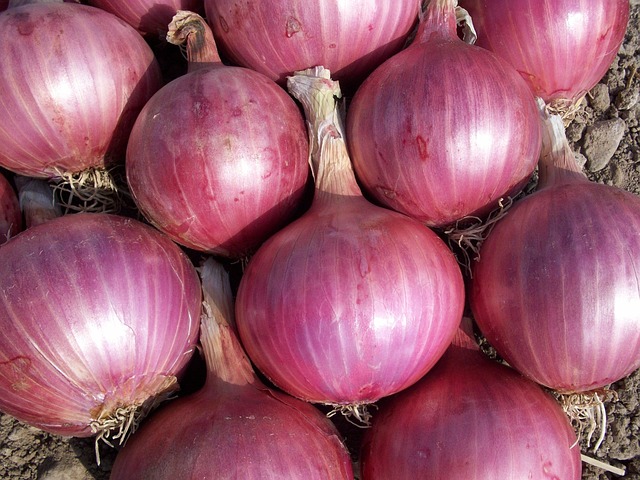Organic Crop Protection Method

Introduction
In modern agriculture, farmers are increasingly turning towards eco-friendly methods that protect crops without harming the environment. Organic crop protection focuses on managing pests, diseases, and weeds through natural and sustainable techniques rather than relying on harsh chemicals. These methods not only preserve soil fertility but also enhance the quality and productivity of crops, ensuring long-term agricultural success.
Unlike conventional chemical-based pesticides, organic crop protection emphasizes prevention and balance. Farmers use biological controls like beneficial insects, natural predators, and bio-pesticides derived from plants, minerals, or microbes. Crop rotation, mulching, intercropping, and using resistant seed varieties further strengthen the plant’s natural defense system. By nurturing biodiversity, these methods create a healthy farm ecosystem where harmful pests are kept in check naturally.
The benefits of adopting organic crop protection are immense. It minimizes harmful residues on food, promotes soil health, protects pollinators, and maintains the ecological balance. Moreover, it reduces farmers’ dependence on expensive chemicals, making farming more cost-effective in the long run. In addition, consumers increasingly prefer organically grown produce, opening new opportunities for farmers in the organic market.
Organic crop protection is not just a farming technique—it’s a commitment to healthier soil, safer food, and a greener planet. By choosing these natural methods, farmers can achieve better output while preserving the environment for future generations.
Biological Control: Nature’s Own Pest Management
Biological control is one of the most effective pillars of organic crop protection. Instead of chemical pesticides, farmers introduce natural predators or beneficial organisms to control harmful pests. Ladybugs, lacewings, and parasitic wasps feed on crop-damaging insects like aphids and caterpillars. Similarly, certain fungi and bacteria naturally attack pests or their larvae, keeping their population under control.
This eco-friendly approach helps maintain a natural balance in the ecosystem. Since no toxic chemicals are used, pollinators like bees remain safe, and soil microorganisms continue to thrive—supporting long-term soil fertility and plant health.
- Botanical and Bio-Pesticides: Safe and Effective Alternatives
Another powerful tool in organic crop protection is the use of botanical and bio-pesticides. These are derived from natural sources like neem, garlic, chili, and microbial extracts. Products made from Azadirachta indica (neem) act as both repellents and growth inhibitors for harmful insects, while garlic and chili sprays can deter pests effectively.
These natural solutions break down quickly in the environment, leaving no harmful residues on crops. They are safer for farmers to handle and pose minimal risk to human health or beneficial organisms. Regular and timely application of these products ensures effective pest control without damaging the ecosystem.
- Cultural and Mechanical Practices: Prevention First
Organic crop protection also emphasizes preventive strategies. Cultural practices like crop rotation, intercropping, and companion planting help disrupt pest cycles and reduce disease buildup in the soil. For example, rotating cereal crops with legumes can improve soil fertility and minimize pest infestations.
Mechanical methods such as handpicking insects, using traps, sticky boards, and protective netting also provide simple yet powerful protection. These techniques are cost-effective, especially for small and medium-scale farmers, and help reduce pest pressure without relying on synthetic inputs.
- Strengthening Plant Immunity Naturally
Healthy plants are naturally more resistant to pests and diseases. By improving soil structure with organic compost, manure, and bio-fertilizers, farmers can boost plant immunity. Balanced nutrition, proper irrigation, and maintaining biodiversity in the field create strong and resilient crops.
In addition, the use of resistant or tolerant crop varieties provides extra protection against specific diseases and insects.
- The Long-Term Benefits of Organic Protection
Adopting organic crop protection methods goes beyond short-term gains. It leads to healthier soil, higher-quality produce, lower input costs, and a cleaner environment. Farmers also benefit from better market opportunities due to the growing demand for chemical-free, organic products.
By combining biological, botanical, cultural, and mechanical methods, farmers create a holistic protection system that supports both productivity and sustainability. This natural approach ensures that agriculture remains healthy, profitable, and environmentally responsible.
Conclusion
Organic crop protection is more than just an alternative to chemical farming—it’s a smart, sustainable strategy that nurtures both the land and the crops. By integrating biological control, natural pesticides, cultural practices, and improved soil health, farmers can build a resilient farming ecosystem that thrives without harming the environment. This approach not only reduces the risk of pest outbreaks but also enhances soil fertility and boosts crop quality.
As consumer demand for safe and chemical-free produce continues to grow, organic farming offers farmers a competitive edge and long-term profitability. Most importantly, it helps preserve biodiversity, safeguard pollinators, and protect future generations. Choosing organic crop protection is a step toward a healthier planet and a more secure food system—proving that sustainable agriculture can be both productive and profitable.
Take the Organic Path to Healthier Crops and Better Yields!
Why settle for chemicals when nature offers smarter, safer solutions? With innovative organic crop protection methods, you can boost productivity, protect soil health, and meet the rising demand for chemical-free produce. Whether you’re a small farmer or managing large-scale cultivation, switching to natural solutions gives your crops lasting strength and your business a sustainable future.
Partner with the experts in organic solutions — indochemagrovet.in — for trusted products, expert guidance, and long-term growth.
📞 Call Now: +91 9830 720311 / 83369 77770
🏢 Mumbai Address: Parewala House No.4 Vakola, Santacruz (East), Mumbai 400055
🏢 Kolkata Address: Block – DD, House no-197, 1st Floor, Street no-295, Action Area-1, New Town, Kolkata, West Bengal 700156
✨ Grow naturally. Protect sustainably. Harvest profitably.
Let’s build a greener future—one crop at a time!

